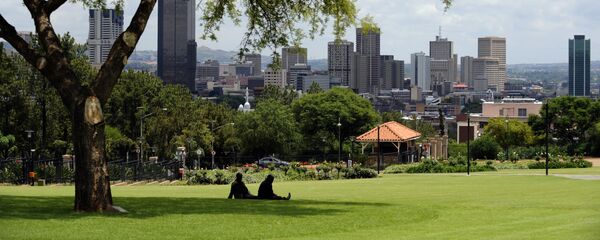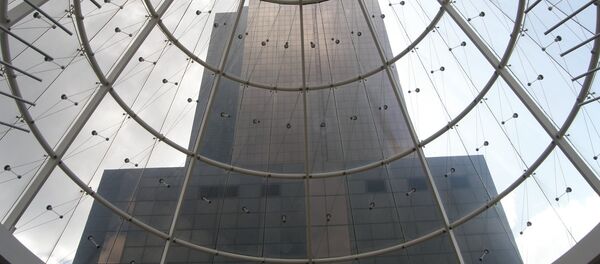Kristian Rouz – International credit rating agencies reaffirmed South Africa’s investment rating yet again this year, which has proven to be rather tumultuous one for the nation’s economy.
South African authorities cheered after the credit ratings were reaffirmed, with Finance Minister Pravin Gordhan having referred to the recent decisions from rating agencies as ‘fantastic achievement’ of his nation.
Fitch Ratings Ltd., having reaffirmed South Africa’s investment rating, moved the outlook to negative from stable in their allegedly last warning to the nation. Ongoing political instability and incoherent economic policy measures might result in an eventual downgrade to ‘junk’, Fitch said, having kept the ratings for foreign currency and local currency at BBB-, their lowest investment grade.
“The in-fighting within the ANC [African National Congress, South Africa’s ruling party] and the government is likely to continue over the next year,” Fitch said in a statement. “This will distract policy makers and lead to mixed messages that will continue to undermine the investment climate, thereby constraining GDP growth.”
Gordhan, for his part, welcomed the decision, having said that only a coordinated effort from the cabinet, private sector, unions and the public would allow for a return to sustainable economic growth. Fitch’s final warning, therefore, is seen as a call to action by South Africa’s Finance Ministry, yet, it remains unclear whether the nation will be able to consolidate its effort boosting the economy almost one year after the last major political scandal, resulting in chaos in the Finance Ministry and a plunge in the rand’s FX rate last December.
“This is a very good moment in South Africa, one that we should celebrate. We have retained our investment rating. That is key,” Gordhan said.
Debt-to-GDP currently stands at 44pc, fairly high compared to high-growth emerging markets, and the nation’s economy is not diversified enough to support greater borrowing, rendering fiscal stimulus hardly possible. On the other hand, the high inflation rate, standing at 6.4pc in October, rules out a central bank stimulus, meaning the South African authorities have limited options for boosting the economy, and an eventual ‘junk’ downgrade is deemed almost imminent, unless commodity exports keep gaining in value, driven by the industrial renaissance in the advanced economies.
The nation’s economy, according to Fitch estimates, will expand by 0.5pc this year, 1.3pc in 2017, and 2.1pc in 2018.
Moody’s Investor Service, another international credit rating agency, on Friday did not take action in regard to South Africa’s investment grade, keeping it at Baa2 without reaffirmation. The agency expressed concern over the nation’s debt-to-GDP accruing “steadily.” Moody’s rating for South Africa is currently two steps above ‘junk’, and the outlook is negative as the projected GDP pace would likely lag behind the expected increase in public debt.
“I think this is basically a way of negatively doing nothing. i.e. they did NOT want to affirm. This, I think, was an active decision to send a signal,” London-based economist Peter Attard Montalto of Nomura International Plc said.
South Africa is currently eyeing a fast-paced economic reform prospect, aimed at fostering business start-ups in the coloured communities. However, the main hope is an extended rebound in commodity prices.
“This buys us more time. I really believe we are on the brink of turning things around,” South African Treasury Director-General Lungisa Fuzile said.
“We need an effort right from the top of government to get this economy going,” economist Christie Viljoen of KPMG LLP in Cape Town said.




